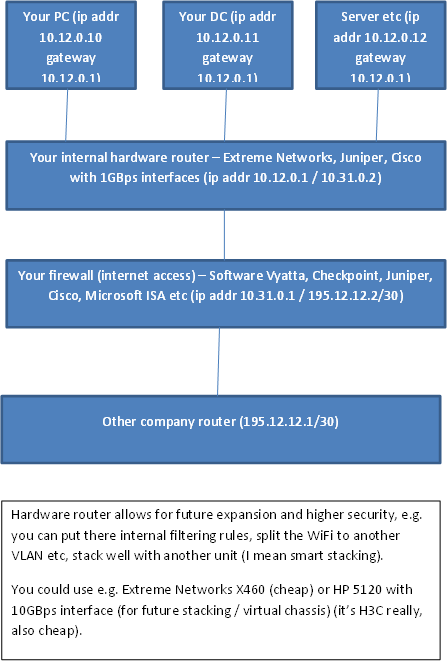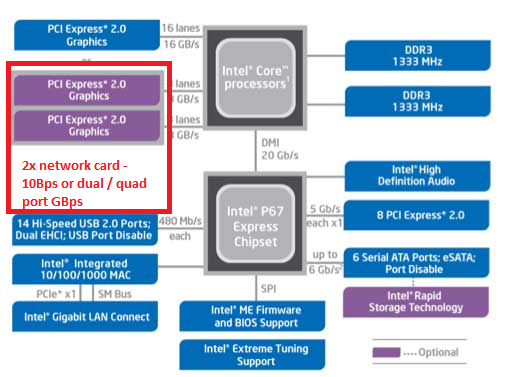I'm hoping to get some advice on a project I've been asked to look after at work. I do all of the IT for a small company that sits inside of a larger corporation. We need to prevent access to certain websites for our small group, so basically I need to setup a firewall within the infrastructure of the larger company.
The larger company is going to be setting up a separate VLAN for us, however, they don't want to use their firewall equipment to do the actual filtering, which is why I need to setup the filtering myself. I have a spare server at my disposal so I'm hoping to accomplish this with software (preferably Linux based since that usually cheap/free and I'm pretty good with Linux) instead of a hardware device if possible. I'm under the assumption that basically what I need is a firewall that will act as the gateway between our small group and the firewall of the corporation which will then lead to the Internet. I'm also hoping to still use the DHCP server of the larger company to serve our IP addresses (if that's possible to pass through the firewall). Lastly I will need to be able to filter websites based on the MAC address that's trying to access the website.
If anyone can offer advice on which firewall software would be best to use in this scenario that would be much appreciated. Also I'm looking on advice on the best way to structure the network ... should we continue using their DHCP, should we setup our own, if we use our own DHCP server, how do we prevent it from serving address to other users on other VLANs? I'm pretty decent with network stuff, just never worked in an environment with VLANs (I know the basic concepts about VLANs, but that's about it).
Thanks in advance for any help, Harry




